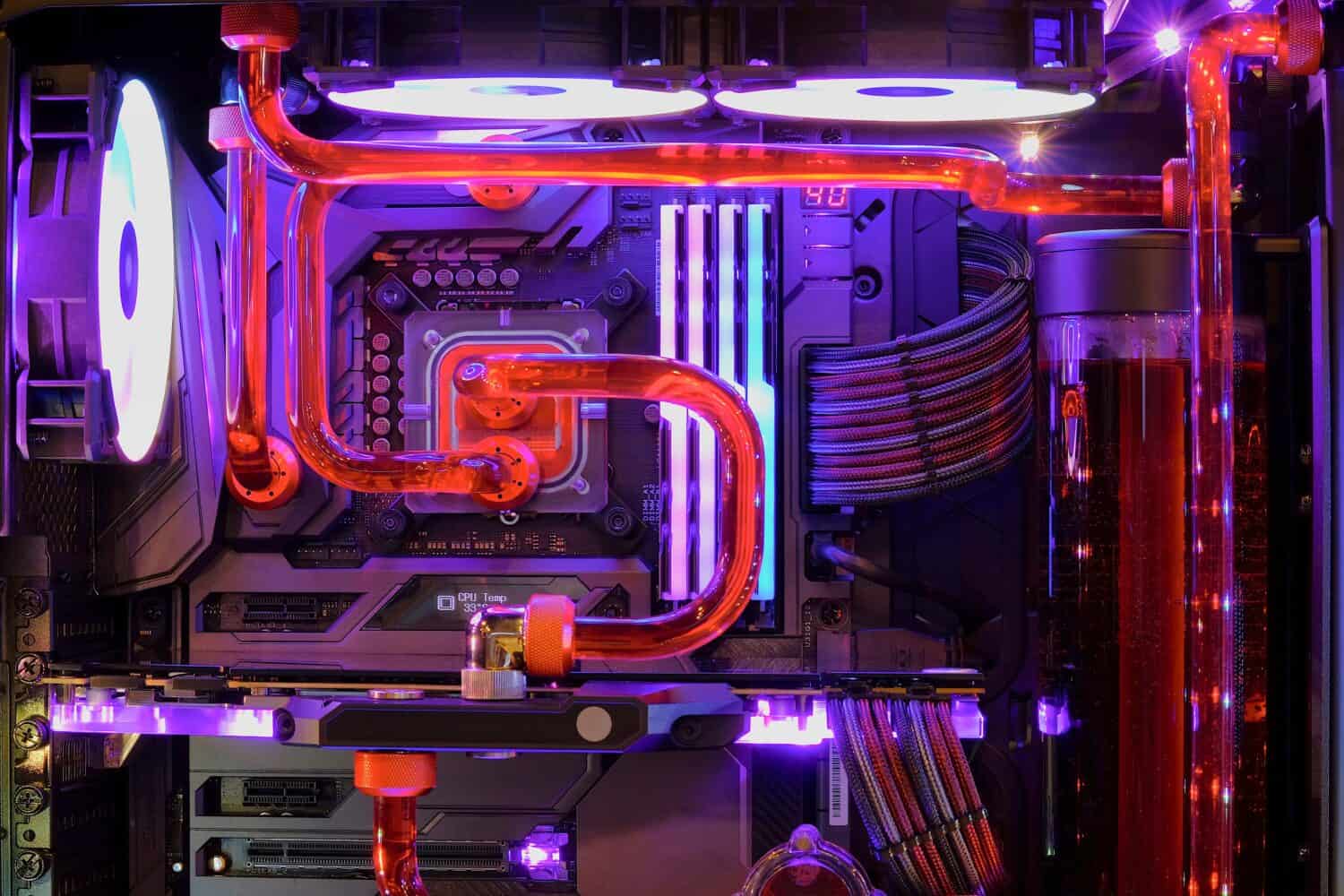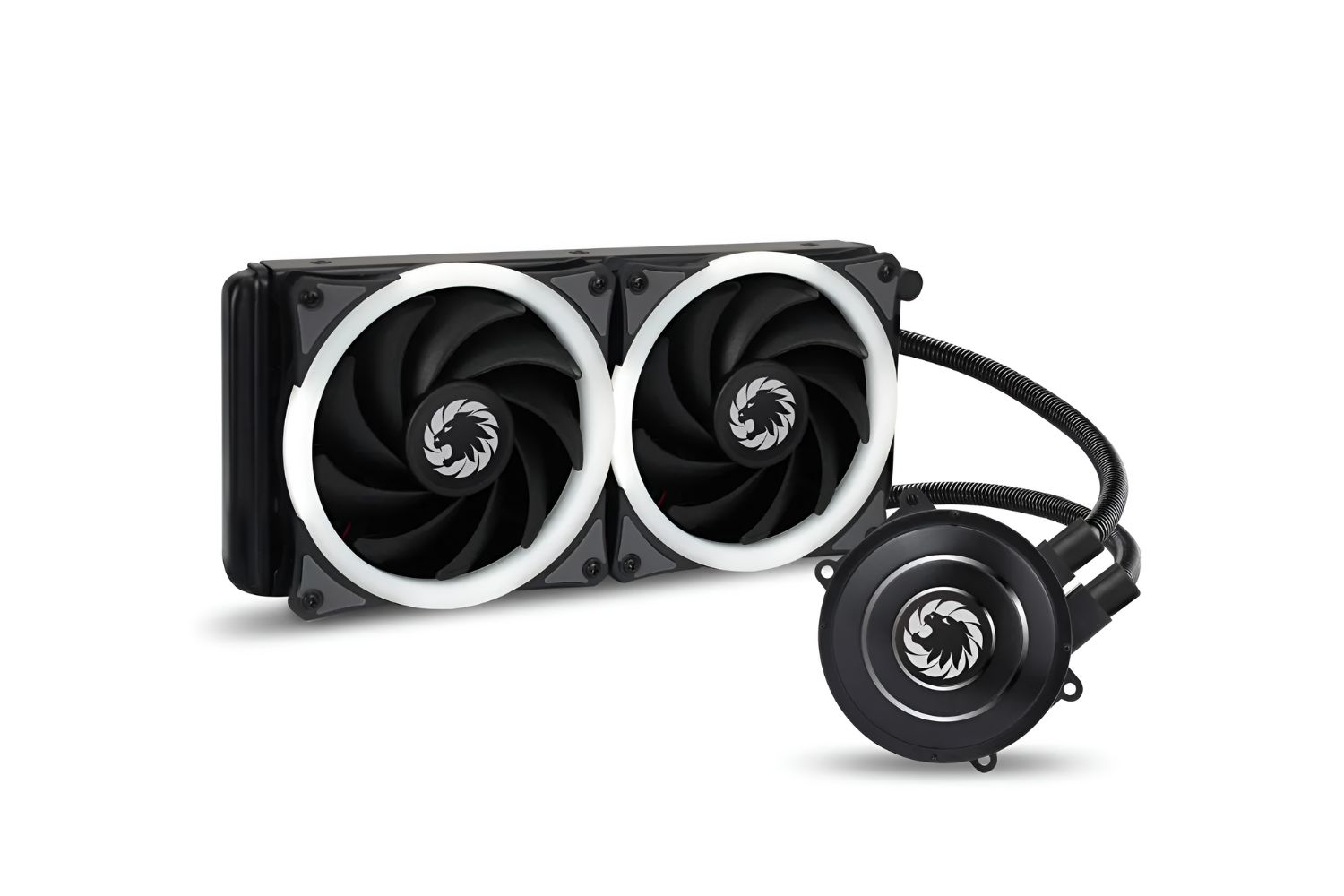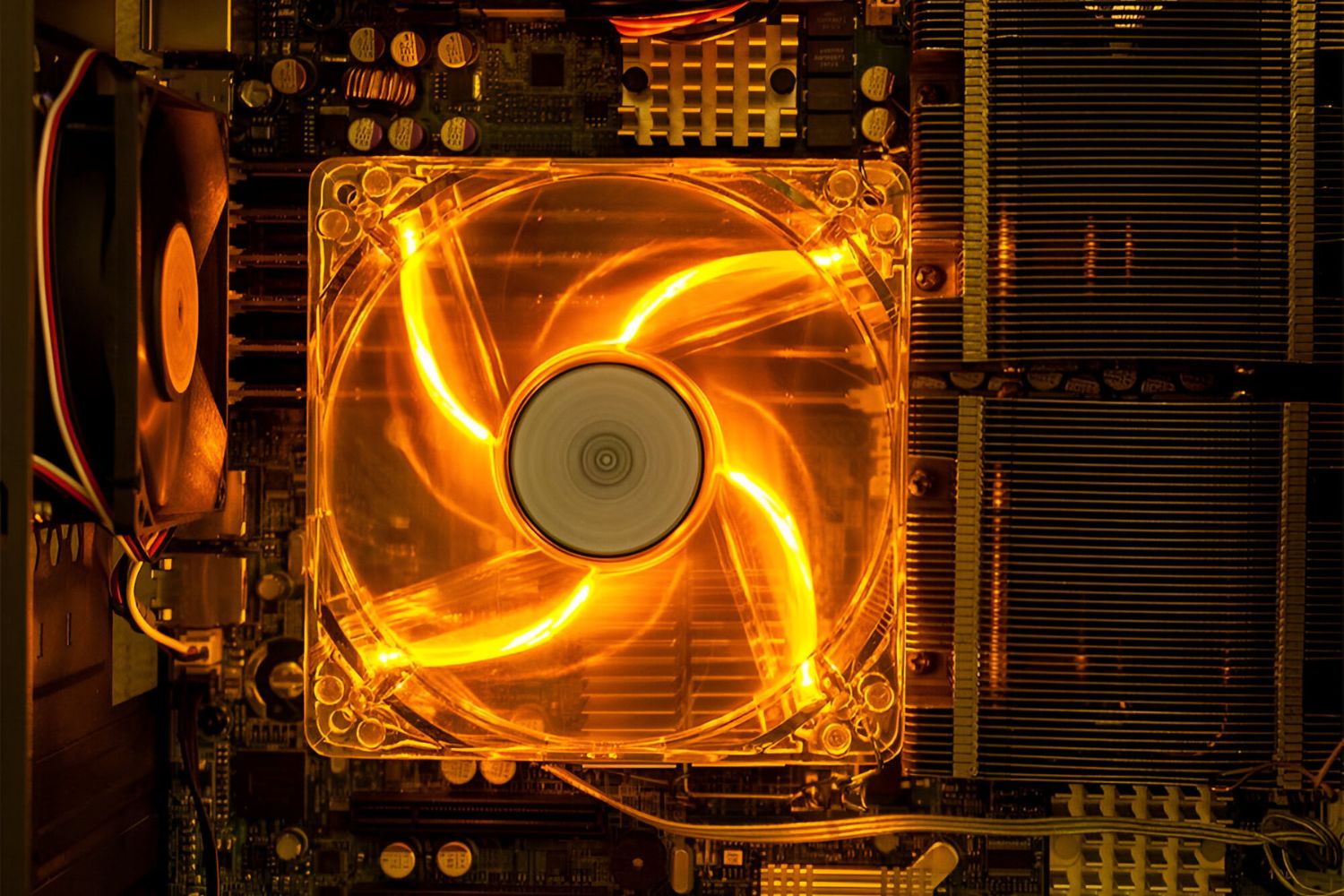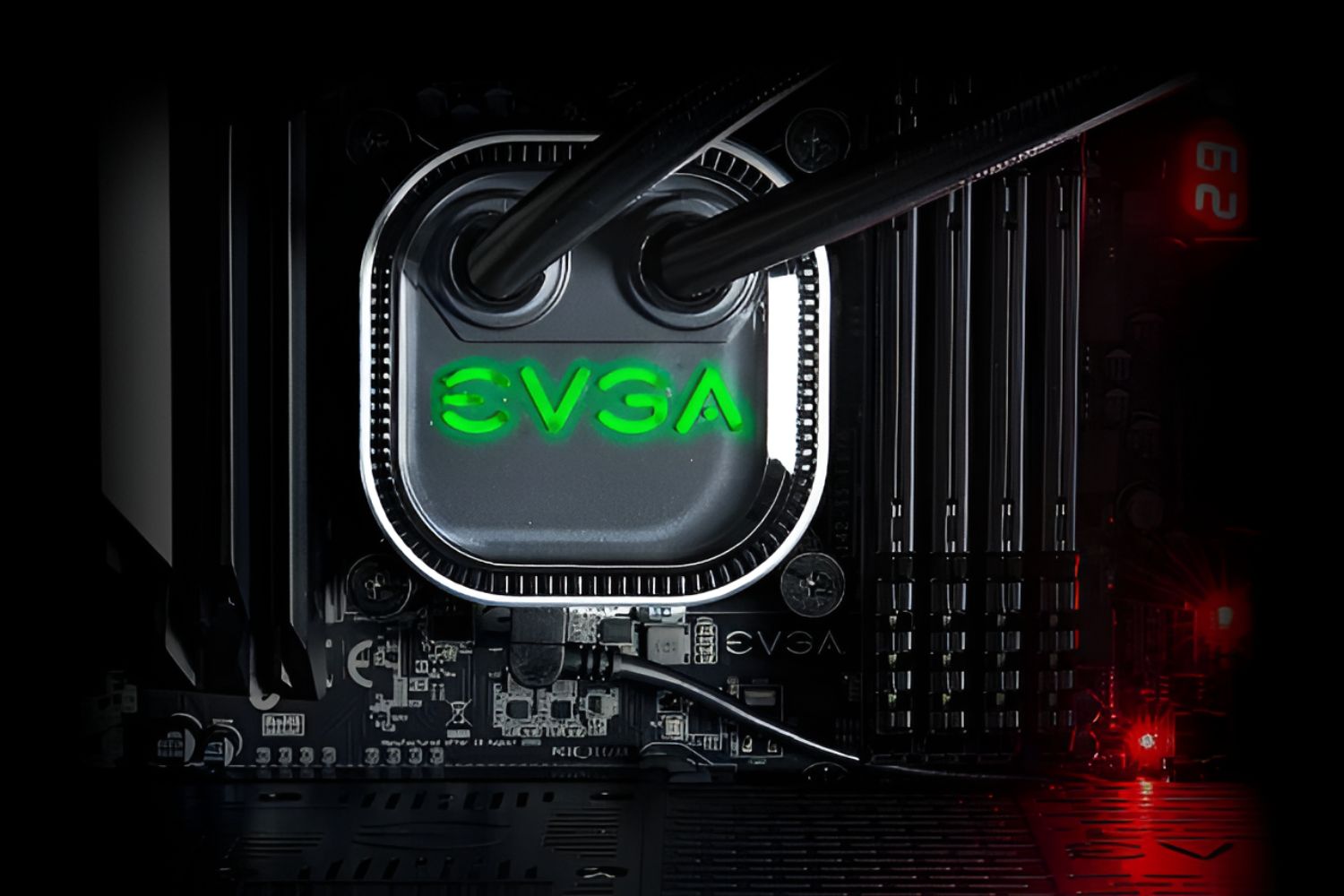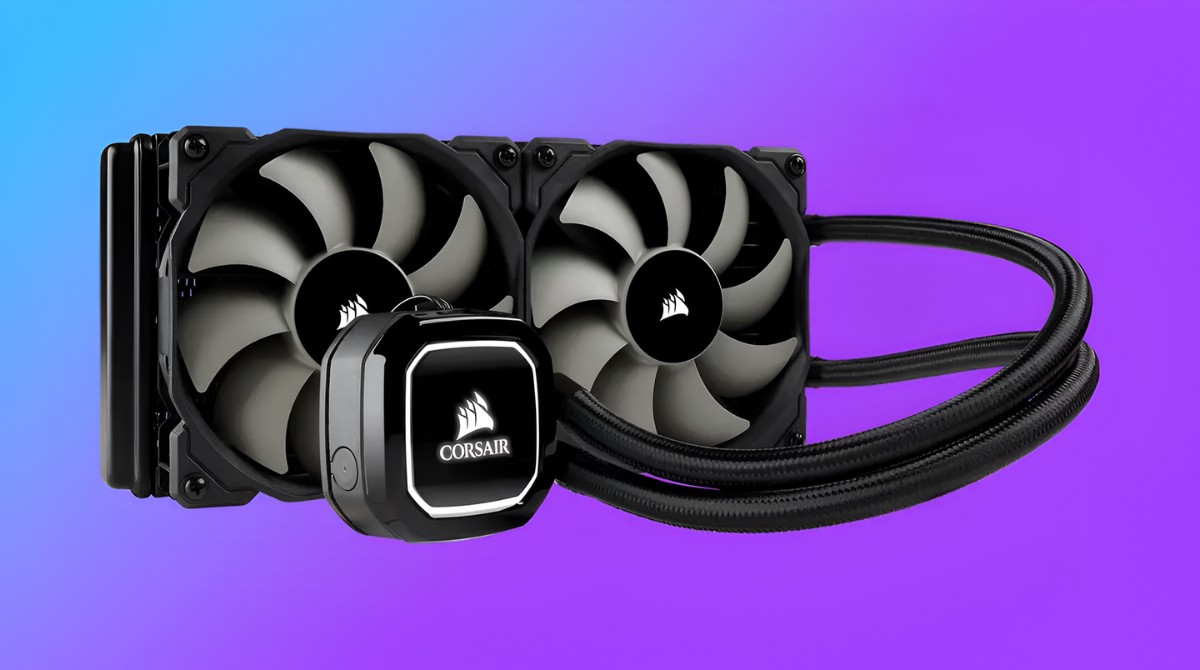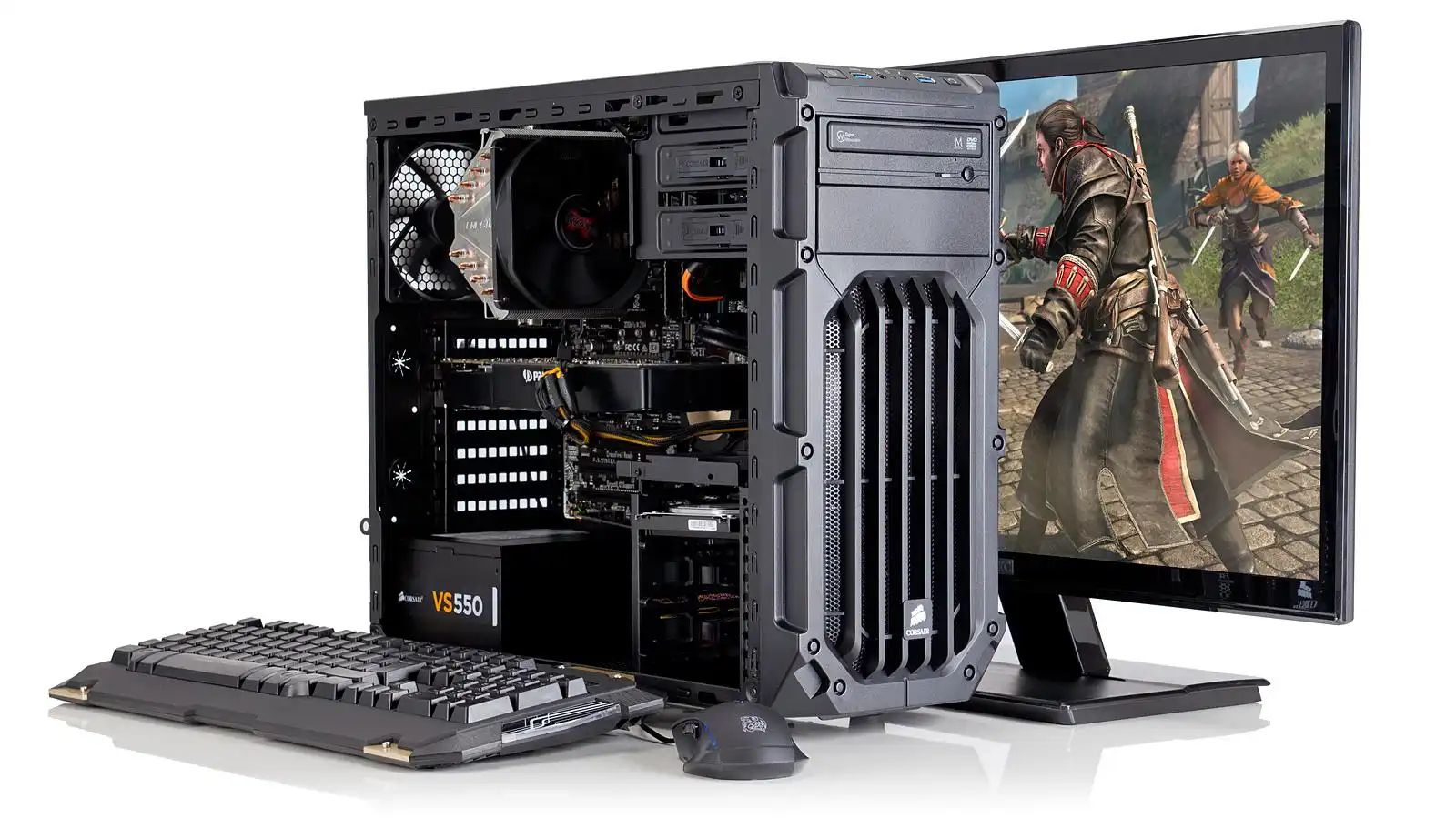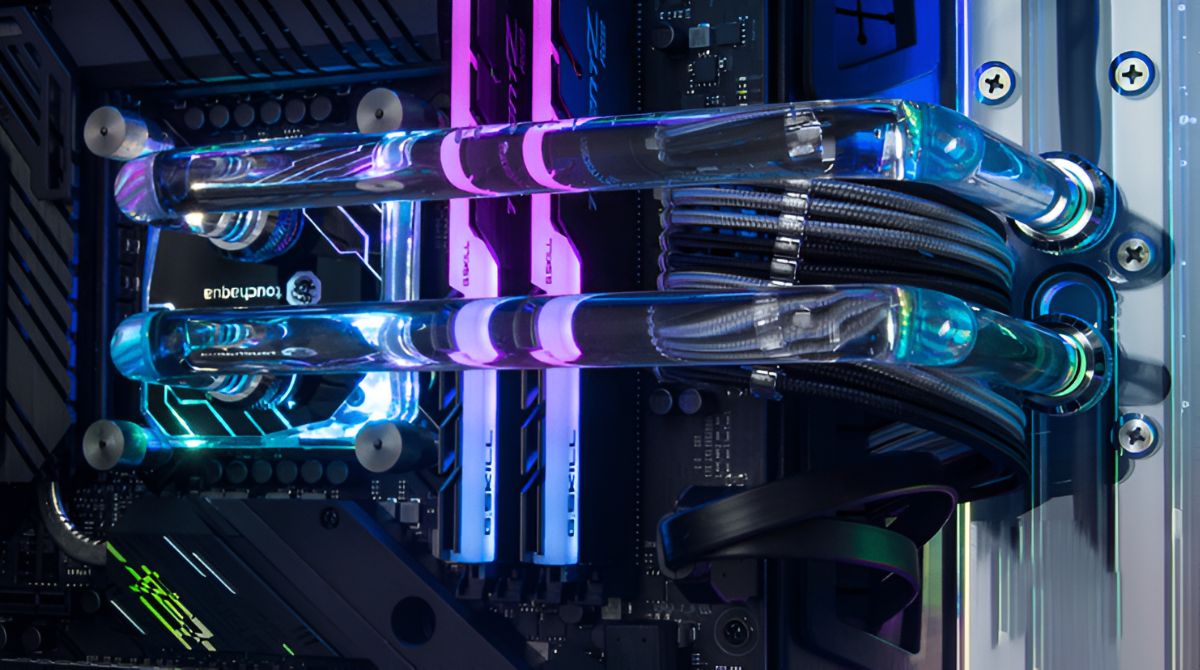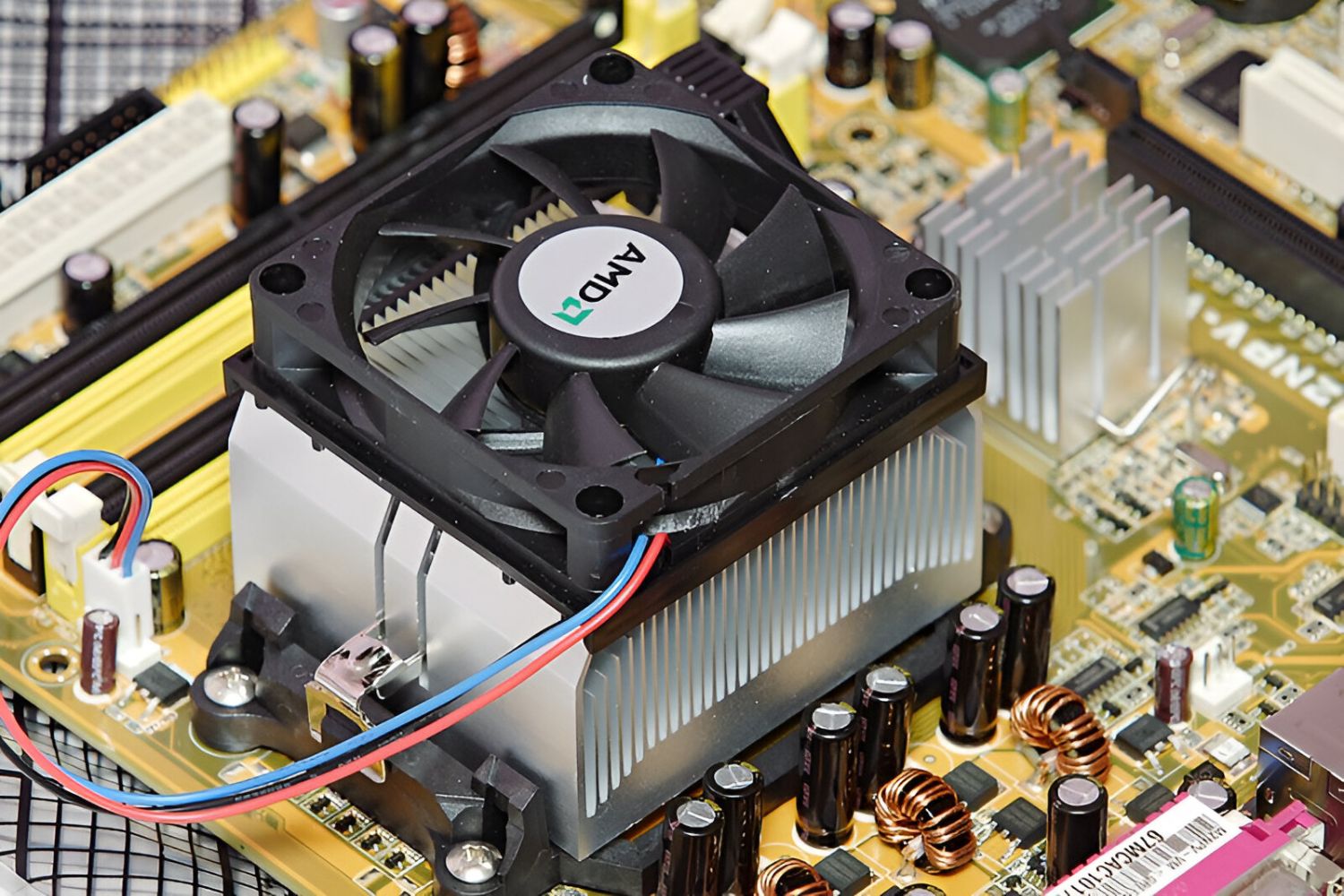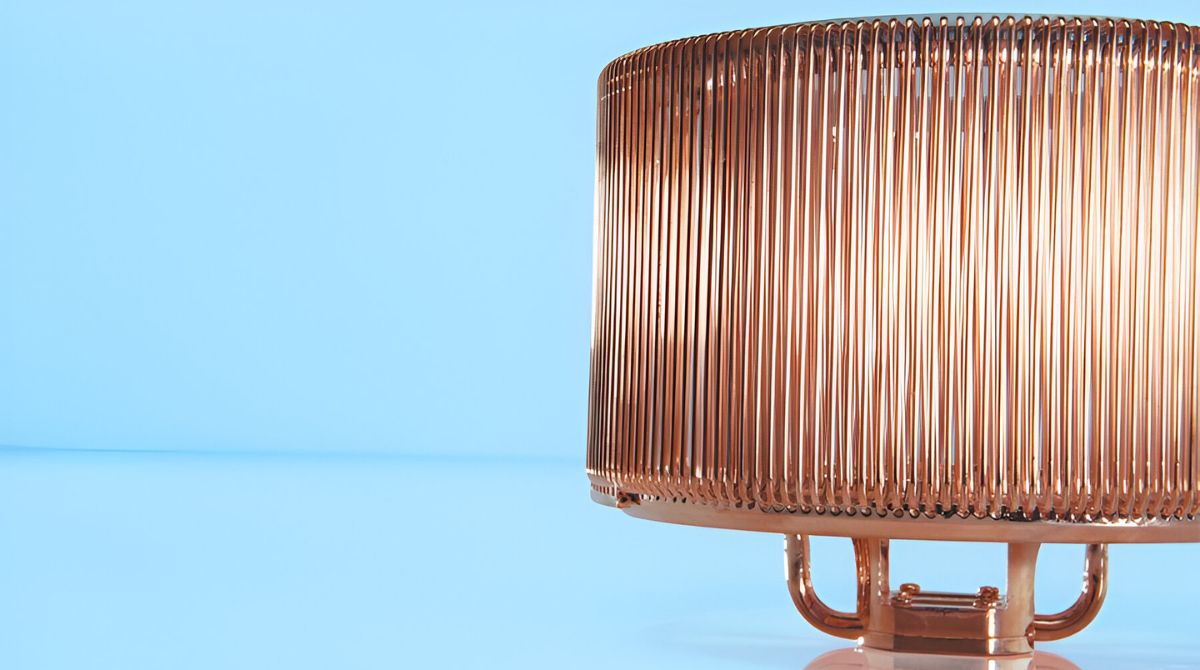Introduction
With the increasing popularity of high-performance computers and the demand for efficient cooling solutions, closed loop CPU coolers have become a popular choice among PC enthusiasts and gamers. These coolers offer superior cooling performance and are designed to keep your CPU temperatures in check, even during intense gaming or CPU-intensive tasks.
But how often do you actually need to replace a closed loop CPU cooler? It’s a common question among PC users who want to ensure their cooling system is running optimally and avoid any potential issues that can arise from a failing cooler. In this article, we’ll explore the factors that affect the lifespan of closed loop CPU coolers, discuss the typical lifespan of these coolers, identify signs that indicate a replacement is needed, and provide essential maintenance tips to extend the lifespan of your closed loop CPU cooler.
Understanding the lifespan of your closed loop CPU cooler is essential for maintaining the longevity of your PC and ensuring optimal cooling performance. By following the guidelines and recommendations outlined in this article, you’ll have a clear understanding of when it’s time to replace your closed loop CPU cooler and how to maximize its lifespan to keep your CPU running cool under heavy workload conditions.
Factors Affecting the Lifespan of a Closed Loop CPU Cooler
Several factors can contribute to the lifespan of a closed loop CPU cooler. Understanding these factors can help you make informed decisions about when to replace your cooler and take appropriate measures to prolong its lifespan. Here are the key factors that can affect the longevity of a closed loop CPU cooler:
- Cooler Quality: The quality of the cooler itself plays a significant role in its lifespan. Coolers made with high-quality materials and components tend to last longer and offer better reliability. Investing in a reputable brand known for its quality construction can make a difference in the lifespan of your closed loop CPU cooler.
- Heat Dissipation Capability: The primary function of a CPU cooler is to dissipate heat generated by the processor. The cooling performance of the cooler directly affects its lifespan. Coolers with larger radiators, efficient fans, and superior heat dissipation capabilities tend to have longer lifespans as they can effectively maintain lower CPU temperatures.
- Operating Conditions: The operating conditions of your PC, such as ambient temperature and system workload, can impact the lifespan of a closed loop CPU cooler. PCs operating in hot environments or consistently running CPU-intensive tasks put more strain on the cooler, potentially shortening its lifespan. Proper airflow and ventilation within the PC case also contribute to the overall cooling performance and can influence the cooler’s durability.
- Maintenance and Cleaning: Regular maintenance and cleaning are crucial for optimal performance and longevity of a closed loop CPU cooler. Dust accumulation can hinder the cooling efficiency and lead to higher temperatures, putting additional stress on the cooler. Cleaning the radiator, fans, and other components periodically can help maintain optimal cooling performance and extend the cooler’s lifespan.
By considering these factors and taking appropriate measures, you can ensure that your closed loop CPU cooler operates optimally and has a longer lifespan. However, despite taking all necessary precautions, it’s important to keep in mind that no cooler lasts indefinitely. Over time, wear and tear can occur, and components may degrade, eventually necessitating a replacement.
Typical Lifespan of Closed Loop CPU Coolers
The lifespan of a closed loop CPU cooler can vary depending on several factors, including the quality of the cooler, operating conditions, and maintenance practices. On average, a well-maintained closed loop CPU cooler can last anywhere from 3 to 6 years before exhibiting signs of deterioration.
It’s important to note that the lifespan of a closed loop CPU cooler is not set in stone, and individual circumstances can significantly impact its longevity. Factors such as the intensity of usage, overclocking, and exposure to high temperatures can accelerate wear and tear on the cooler, shortening its lifespan.
Higher-end closed loop CPU coolers, typically manufactured by reputable brands, often come with warranties ranging from 3 to 5 years. This warranty period can give you a general idea of the manufacturer’s confidence in their product’s durability and expected lifespan.
However, it’s worth mentioning that even if a closed loop CPU cooler surpasses its warranty period, it doesn’t necessarily mean it’s time for an immediate replacement. Proper maintenance, regular cleaning, and monitoring of temperature levels can significantly extend the lifespan of your cooler beyond its warranty period. Conversely, neglecting maintenance practices or using the cooler under extreme conditions can shorten its lifespan.
It’s important to monitor your cooling system’s performance over time and keep an eye out for any signs that may indicate the need for a replacement. Additionally, as technology evolves, newer and more efficient closed loop CPU coolers may become available, offering improved cooling performance and longevity.
Ultimately, the typical lifespan of a closed loop CPU cooler is influenced by various factors, and there is no definitive timeframe for replacement. It’s essential to assess the condition of your cooler regularly, consider any changes in its cooling efficiency, and make an informed decision based on your specific needs.
Signs that Your Closed Loop CPU Cooler Needs Replacement
While closed loop CPU coolers can last for several years, there are certain signs that indicate it’s time for a replacement. Recognizing these signs early can help prevent potential damage to your CPU and ensure optimal cooling performance. Here are some common signs that your closed loop CPU cooler may need replacement:
- Increased CPU Temperatures: If you notice a significant increase in your CPU temperatures, even during normal usage or idle states, it could be a sign of a failing cooler. Higher than usual temperatures can indicate poor heat dissipation or malfunctioning components within the cooler. Monitoring your CPU temperatures regularly can help you identify any abnormalities.
- Frequent System Overheating: Inadequate cooling performance can lead to frequent system overheating, resulting in unexpected shutdowns or system instability. If your PC is consistently overheating, despite ensuring adequate airflow and ventilation, it may be a sign that your closed loop CPU cooler is no longer functioning optimally.
- Unusual Noises: Strange or excessive noises coming from your closed loop CPU cooler, such as rattling, grinding, or buzzing sounds, can indicate a mechanical problem or fan malfunction. These noises can disrupt your computing experience and should be investigated promptly to determine if a replacement is necessary.
- Leaking or Corrosion: If you notice any signs of leakage or corrosion on your closed loop CPU cooler’s components, such as the pump or radiator, it is a clear indication that the cooler is compromised. Leakage can lead to irreparable damage to your PC components, so it is crucial to address this issue immediately and consider replacing the cooler.
- Age and Warranty Expiration: As mentioned earlier, closed loop CPU coolers have a typical lifespan of 3 to 6 years. If your cooler is approaching or has surpassed this timeframe, it may be wise to consider a replacement, especially if you notice any other signs of deterioration. Additionally, if your cooler is no longer covered under warranty, it may be a good time to explore newer, more efficient options.
It’s important to note that these signs may not necessarily indicate a failing cooler in all cases, as there can be other factors that contribute to the observed symptoms. However, if you notice multiple signs or experience a combination of these indicators, it is recommended to consult with a professional or consider replacing your closed loop CPU cooler to avoid potential damage to your CPU and overall system performance.
Maintenance Tips to Extend the Lifespan of Your Closed Loop CPU Cooler
Proper maintenance is crucial for ensuring the longevity and optimal performance of your closed loop CPU cooler. By following these maintenance tips, you can maximize the lifespan of your cooler and keep your CPU running cool even during intensive tasks:
- Regular Cleaning: Dust and debris can accumulate on the radiator, fans, and other components of your closed loop CPU cooler, hindering its cooling efficiency. Regularly cleaning these parts with compressed air or a soft brush can help remove the buildup and maintain reliable cooling performance.
- Monitor Temperature Levels: Keep an eye on your CPU temperatures using monitoring software or BIOS utilities. This allows you to quickly identify any sudden spikes or fluctuations that may indicate a problem with your cooler. Overheating can significantly impact the lifespan of a closed loop CPU cooler, so prompt action is essential if you notice abnormal temperature readings.
- Optimize Airflow: Ensure that your PC case has proper airflow and ventilation. Good airflow helps in dissipating heat efficiently and prevents hot air pockets around the closed loop CPU cooler. Ensure that fans are functioning correctly and positioned to provide optimal cooling airflow.
- Replace Thermal Paste: Over time, the thermal paste between the CPU and the cooler can degrade, leading to reduced heat transfer. It’s advisable to replace the thermal paste every couple of years to maintain optimal thermal conductivity between the CPU and the cooler.
- Monitor Pump Functionality: Closed loop CPU coolers have a pump responsible for circulating the coolant. Monitor the pump’s performance by listening for any unusual noises or vibrations. If you suspect the pump is malfunctioning, contact the manufacturer or consider replacing the cooler.
- Update Firmware or Software: Manufacturers may release firmware or software updates for closed loop CPU coolers to enhance performance and address any known issues. Regularly check for and install these updates to ensure your cooler is running on the latest version.
By implementing these maintenance tips, you can extend the lifespan of your closed loop CPU cooler and maximize its cooling performance. Remember, prevention is better than cure, so it’s essential to be proactive in maintaining your cooler to avoid costly replacements or potential damage to your CPU.
Conclusion
Understanding the lifespan of a closed loop CPU cooler is crucial for maintaining optimal cooling performance and protecting your CPU from potential damage. While the typical lifespan of a closed loop CPU cooler can range from 3 to 6 years, various factors can influence its longevity.
Factors such as cooler quality, heat dissipation capability, operating conditions, and maintenance practices play a significant role in determining how long a closed loop CPU cooler will last. By investing in a high-quality cooler, ensuring proper maintenance, monitoring temperature levels, and optimizing airflow within your PC case, you can extend the lifespan of your cooler.
However, it’s important to be aware of signs that indicate your closed loop CPU cooler may need replacement. Increased CPU temperatures, frequent system overheating, unusual noises, leakage or corrosion, and an aging cooler approaching or surpassing its warranty period are all indicators that it may be time for a replacement.
By following regular maintenance practices, such as cleaning the cooler, replacing thermal paste, and monitoring pump functionality, you can prolong the lifespan of your closed loop CPU cooler. Additionally, keeping an eye on firmware or software updates can help ensure that your cooler is operating at its best performance.
Ultimately, replacing your closed loop CPU cooler when necessary is vital for maintaining the cooling efficiency of your system and protecting your CPU from overheating. By staying vigilant, considering your specific usage conditions, and taking proactive steps, you can enjoy the benefits of a well-functioning cooler and a high-performing CPU for years to come.







